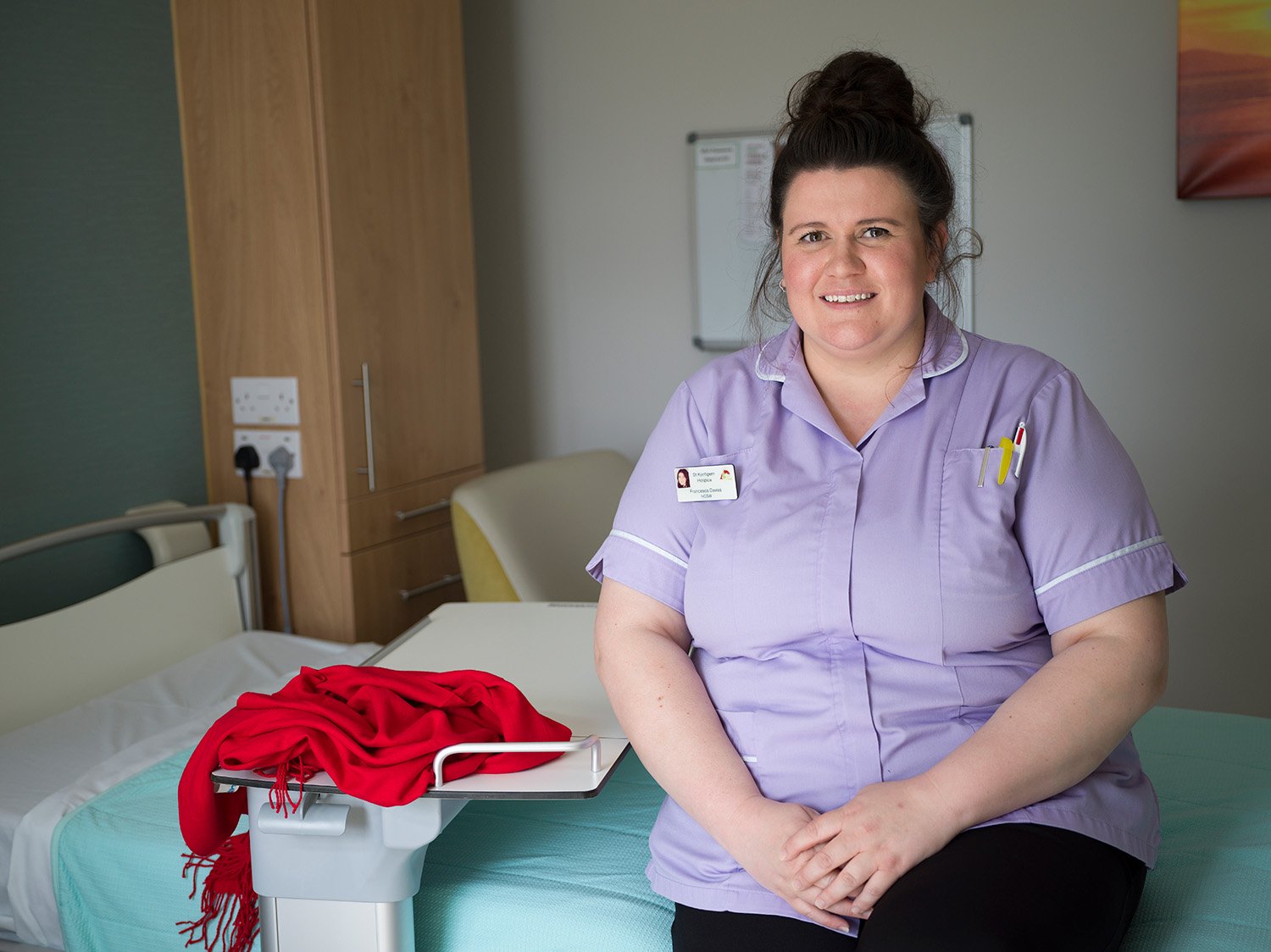What matters most?
Francesca
Francesca has worked in healthcare for 10 years and at St. Kentigern’s Hospice for just under a year. Prior to that, she worked in oncology care and community care in various areas.
“I was drawn to working in this environment through personal experience, but also through the experience I've gained from working in the acute oncology ward. I’ve dealt with a lot of patients that were not only undergoing active treatments such as chemotherapy and radiotherapy but patients on palliative care. After I went on to do district nursing, I fell in love with the palliative side. So, when this post came up here at St. Kentigern, I thought it would be an amazing opportunity. I think it’s the holistic care that drew me in, it’s being back to basics. It’s caring not only for the patient but their family. You’re there as a whole unit for them. It’s also the time you can give that person with individualised care.”
The role in which she works is not just related to end-of-life care, as people assume hospice care is. St Kentigern’s also offer respite care; individuals will come for a week’s stay to give their family some much needed rest. Workers at the hospice also offer symptom management and pain control, to help those within the community who need it most. Francesca builds a relationship with every individual that she helps, admitting that sometimes it can be tough to separate professional and personal emotions, especially with getting to know the families as well. “This is what this role is, it's such a privilege to be around people at their most vulnerable and the end of life, it's being able to give them the high-quality care that they deserve.”
Sometimes shifts can be hard, especially during the nights when people are awake, scared and agitated. “It's about giving them reassurance, that you’re there for them, it's giving that time. It's making sure that each patient has individual care because their needs may be different to the person next door to them. It's just about making sure the care is tailored to them and giving them coping mechanisms that might help and benefit them.” Being in a hospice is like being at home with palliative care, it's homely, but the main difference is the staff that are available. Francesca believes that time is freer in the hospice affording more time with the patients. There is someone at the hospice 24/7, whilst being at home doesn’t always afford for the staff to be present without being called out or pre-arranged care being in place.









